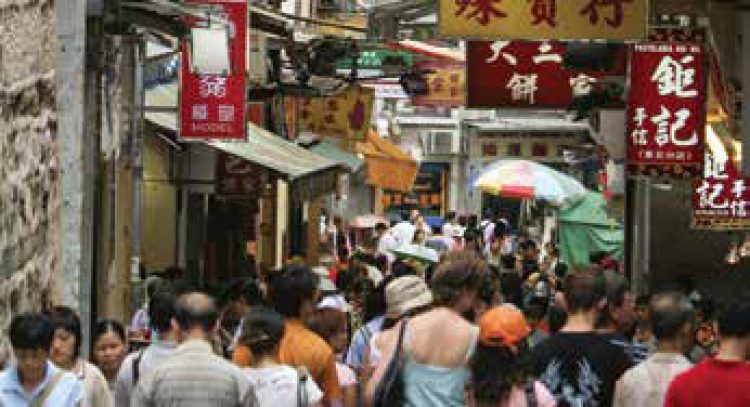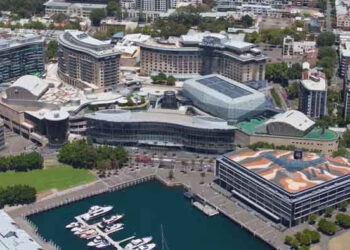Mainland Chinese visitor numbers to Macau rose over Chinese New Year, although analysts doubted if this signaled an end to the city’s protracted slump in gaming revenues.
The Lunar New Year holiday, which this year fell on 7 to 13 February, is a peak season for the city. According to the Macau Government Tourist Office, visitor arrivals from mainland China over the week rose by 4.3% when compared with last year, to 793,598. This followed nine months of year-on-year falls, before a slight rise of 1% in December and fall of 1% in January.
Average daily revenue at tables during the week, however, was still down 20% from last year, continuing a year-and-a-half of monthly falls. Some analysts concluded more visitors overall have done little to offset the collapse in high-roller spending caused by Xi Jinping’s anti-corruption crackdown and the souring Chinese economy. Others reckoned that few of the extra arrivals were gamblers.
“Our latest channel checks suggest mass tables remain quiet. In particular, we are hearing this Chinese New Year is notable for the number of families present in Macau, and their higher propensity to enjoy non-gaming amenities and lower propensity to gamble,” wrote Wells Fargo Securities in a research note. “Given everything we are seeing and hearing in the market and in China, we are not sure what the catalyst is for 18 months of trend decline to suddenly turn around in February.”
To support the idea that non-gamblers accounted for Macau’s tourism uptick, visitor arrivals recorded in Hong Kong over the Chinese New Year were down 12% this year. Given that visitor arrivals to the two cities have historically moved in tandem, and given that visitors to Hong Kong dropped in the aftermath of the city’s 2014 pro-democracy “umbrella” protests, it’s possible many were also scared away from Hong Kong this year by the rioting that broke out on February 8 in the city’s Mong Kok district. If, instead of cancelling their holiday outing, mainlanders diverted from Hong Kong to Macau, then Macau’s New Year surge was indeed a one-off and unrelated to any long-term trend.






























